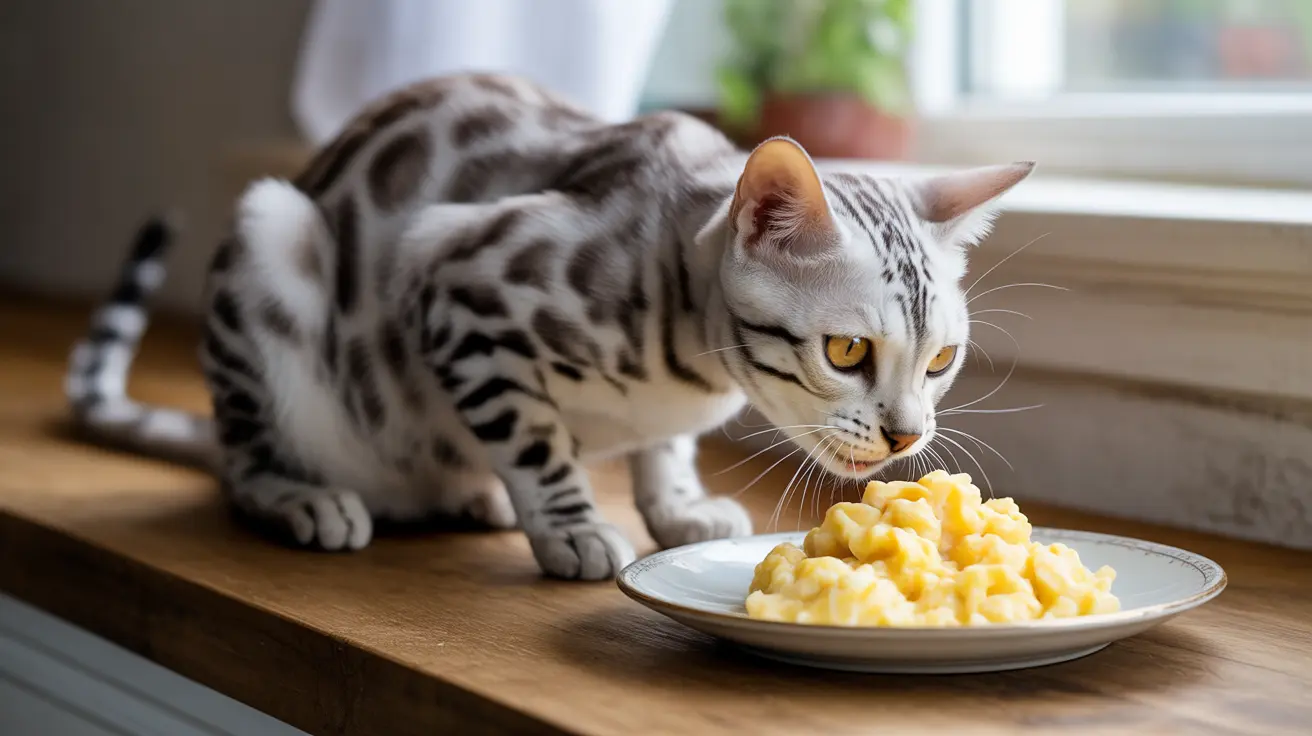Many cat owners wonder about expanding their pet's diet beyond traditional cat food, and eggs often come up as a potential addition. The good news is that cats can indeed eat eggs when properly prepared, making them a nutritious supplement to your feline's regular diet. Let's explore everything you need to know about feeding eggs to cats, from their nutritional benefits to proper preparation methods.
As obligate carnivores, cats naturally benefit from protein-rich foods like eggs. However, understanding the right way to serve eggs to your cat and knowing appropriate portions is crucial for their health and safety.
Nutritional Benefits of Eggs for Cats
Eggs pack a powerful nutritional punch that can benefit your feline companion in several ways. They contain high-quality protein that supports muscle maintenance and tissue repair, essential for your cat's overall health.
- Vitamins A, B6, B12, D, and E for immune support and vision health
- Essential minerals like iron, zinc, and selenium
- Healthy fats and omega-3 fatty acids for coat health
- Lutein, an antioxidant specifically beneficial for eye health
Safe Preparation Methods for Cats
When it comes to serving eggs to your cat, proper preparation is crucial. Always ensure eggs are fully cooked before offering them to your feline friend. Raw or undercooked eggs can pose serious health risks.
- Scrambling without seasonings or additives
- Hard-boiling and chopping into small pieces
- Avoiding all salt, spices, and oils
- Removing shells completely before serving
Proper Portion Sizes and Feeding Guidelines
While eggs can be a healthy addition to your cat's diet, moderation is key. Eggs should be treated as an occasional treat rather than a dietary staple. A good rule of thumb is to offer no more than a quarter of a scrambled egg as an occasional treat, once or twice a week.
Keep in mind that eggs should never replace your cat's regular balanced cat food. They should make up no more than 10% of your cat's daily caloric intake to maintain a properly balanced diet.
Health Considerations and Risks
Before introducing eggs to your cat's diet, consider these important health factors:
- Some cats may have egg allergies or sensitivities
- Cats with kidney problems or pancreatitis should avoid eggs
- Excessive egg consumption can lead to weight gain
- Digestive issues may occur if too many eggs are consumed
Always monitor your cat after introducing eggs for the first time, and consult with your veterinarian if you have specific concerns about your cat's diet.
Frequently Asked Questions
Can cats eat eggs safely, and how should eggs be prepared before feeding them to my cat?
Yes, cats can safely eat eggs when they are fully cooked. Eggs should be prepared plain - either scrambled, boiled, or chopped - without any seasonings, salt, or oils. Never serve raw or undercooked eggs to your cat.
What nutritional benefits do eggs provide for cats when included in their diet?
Eggs provide high-quality protein, essential vitamins (A, B6, B12, D, E), minerals (iron, zinc, selenium), and healthy fats. They also contain lutein for eye health and amino acids that support heart and brain function.
How often and in what portion size can I feed eggs to my cat without causing health issues?
Eggs should be given as an occasional treat, no more than once or twice a week. A suitable portion is about a quarter of a scrambled egg per serving. This ensures eggs remain a healthy supplement without causing weight gain or nutritional imbalances.
Are there any risks or health concerns I should be aware of before giving eggs to my cat?
Key risks include potential allergies, weight gain from excessive consumption, and digestive issues if too many eggs are fed. Cats with certain health conditions like kidney problems or pancreatitis should avoid eggs. Always introduce eggs gradually and monitor for adverse reactions.
What signs of egg intolerance or allergy should I watch for after introducing eggs to my cat's diet?
Watch for signs such as vomiting, diarrhea, lethargy, skin irritations, excessive scratching, respiratory issues, or changes in appetite or litter box habits. If you notice any of these symptoms, discontinue feeding eggs and consult your veterinarian.






